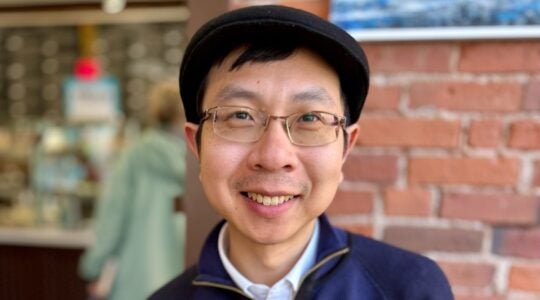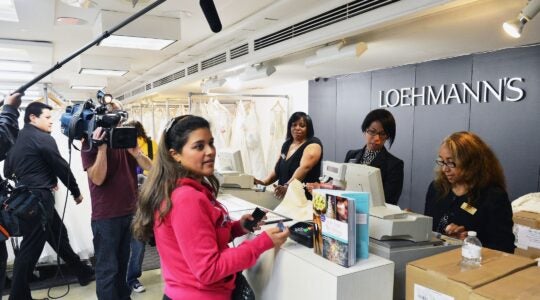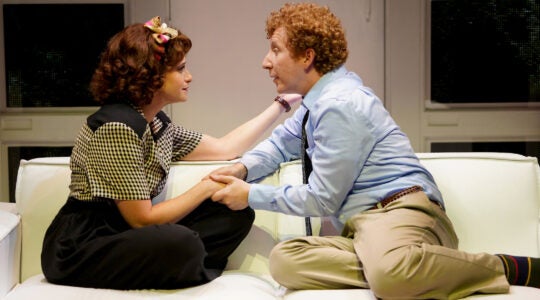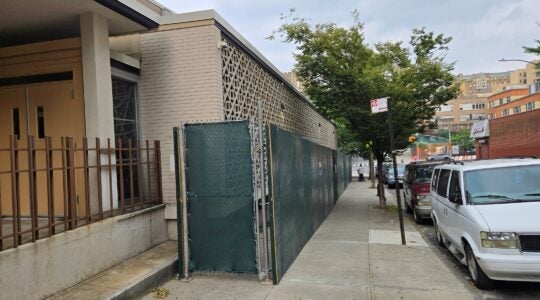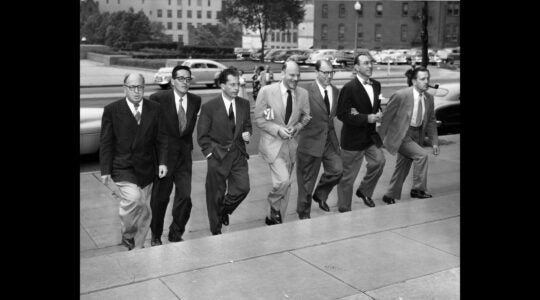The last time the Marlene Meyerson JCC Manhattan presented its ReelAbilities Film Festival, the pandemic pushed events online for what might have been the first all-virtual film festival in the country.
One year later, most of the films by and about people with disabilities will again be screened online, but the festival is taking careful steps back into the live-events business.
The largest festival of its kind in the U.S., ReelAbilities begins Thursday night, April 29 with a live screening at a drive-in theater in Queens. When it ends on May 5, it will have shown nine features and 19 shorts, and have included a comedy night on the Upper West Side institution’s rooftop.
The JCC will also begin in-person film screenings on its rooftop starting next month, with masks required and social distancing enforced.
The Jewish Week spoke with Isaac Zablocki, the director and co-founder of the festival, about representation in film, festival highlights and the Jewish community’s perspective on inclusion and diversity.
Last year the event was virtual. Is it fair to say that that actually helped more people, and more people with disabilities, see films that they might not have been able to see in person?
Absolutely. We always tried to be accessible, we always ran in multiple locations, so people can access the films. But there are so many people who can’t leave their homes or who can’t go to events like these, and they wrote to us saying, “Thank you, this is the first time I was able to attend the festival,” and we realized that yes, virtual means more accessible. So we hope to continue that in some form even after this is all behind us.
Why it’s important to feature films about people with disabilities?
This is the most underserved, underrepresented minority population in America and in the world. Twenty percent of Americans are people with disabilities, and this is hardly represented in film where, at best, 2 percent of [speaking characters] have a disability. And often those are not authentic representations. These films really get to celebrate a community that is completely underrepresented, while at the same time, there’s a progressive community out there that doesn’t completely know how or even rejects a relationship with the disability community. Film is a great way to fix that. You come for a fun opening night at a drive-in, and for the first time you’ll actually see a fun movie that includes people with disabilities, and gives people who are possibly distant from this topic a little window into this world.
What are some of the festival highlights?
At the Queens Drive-In on opening night [April 29, 7:00 pm] it’s a film called “Best Summer Ever.” It’s the first musical made with a completely diverse cast and crew and people with disabilities working behind the scenes, too. It’s really groundbreaking as far as its diversity and inclusion. We’re also going to be honoring Itzhak Perlman, who is going to join us for a conversation.
On closing night [May 5], there is a film called “Not Going Quietly.” It’s about Ady Barkan, who is an activist pushing healthcare reform, and it’s an amazing film that’s getting a lot of attention. Ady, who has ALS, is going to be joining us for a conversation. We’ll also have as part of the closing night event [autism rights advocate and animal behaviorist] Temple Grandin in conversation, which is a real honor. She is one of the really outstanding voices for disability, and we’ve been trying for years to find the right connection and finally made it work this year.
And on Monday there is going to be a standup comedy night?
It’s going to be on the roof and be our first in-person event since the pandemic. We’re going to have four or five comedians up on the roof with six feet between each person. It’s not ideal but it’s a nice start. And we’ll have Jewish and Palestinian comedians on stage, which is another symbol of the diversity of this community. All are comedians with disabilities who are active in the disability world and in the mainstream comedy world.
Why is it important for a Jewish institution to be putting on a festival about people with disabilites?
Within our Jewish tradition there are a lot of wonderful messages, like everyone is created in the image of God, and there are specific conversations on how to treat people with disabilities. There’s also, unfortunately, less positive examples. We have a very old tradition and some things need to be updated, meaning that people with disabilities do not always receive from Judaism the most progressive approach.
People with disabilities do not always receive from Judaism the most progressive approach.
Ultimately, the Jewish community has always been a community that’s set up for civil rights and human rights. The importance in our community to be more accepting of others is a lesson that we constantly put at our forefront here at the JCC. Bringing the community together means bringing everyone, and I think that as a community center, specifically Jewish or not, you really need to understand the community’s needs and to be designed on a universal level. ReelAbilities represents the openness and inclusivity that we look for within our community values.
The Marlene Meyerson JCC Manhattan’s 13th annual ReelAbilities Film Festival runs from April 29 through May 5. Go to https://reelabilities.org/newyork/schedule/ for a complete schedule. Tickets can be purchased at https://reelabilities.org/newyork/.
The New York Jewish Week brings you the stories behind the headlines, keeping you connected to Jewish life in New York. Help sustain the reporting you trust by donating today.
